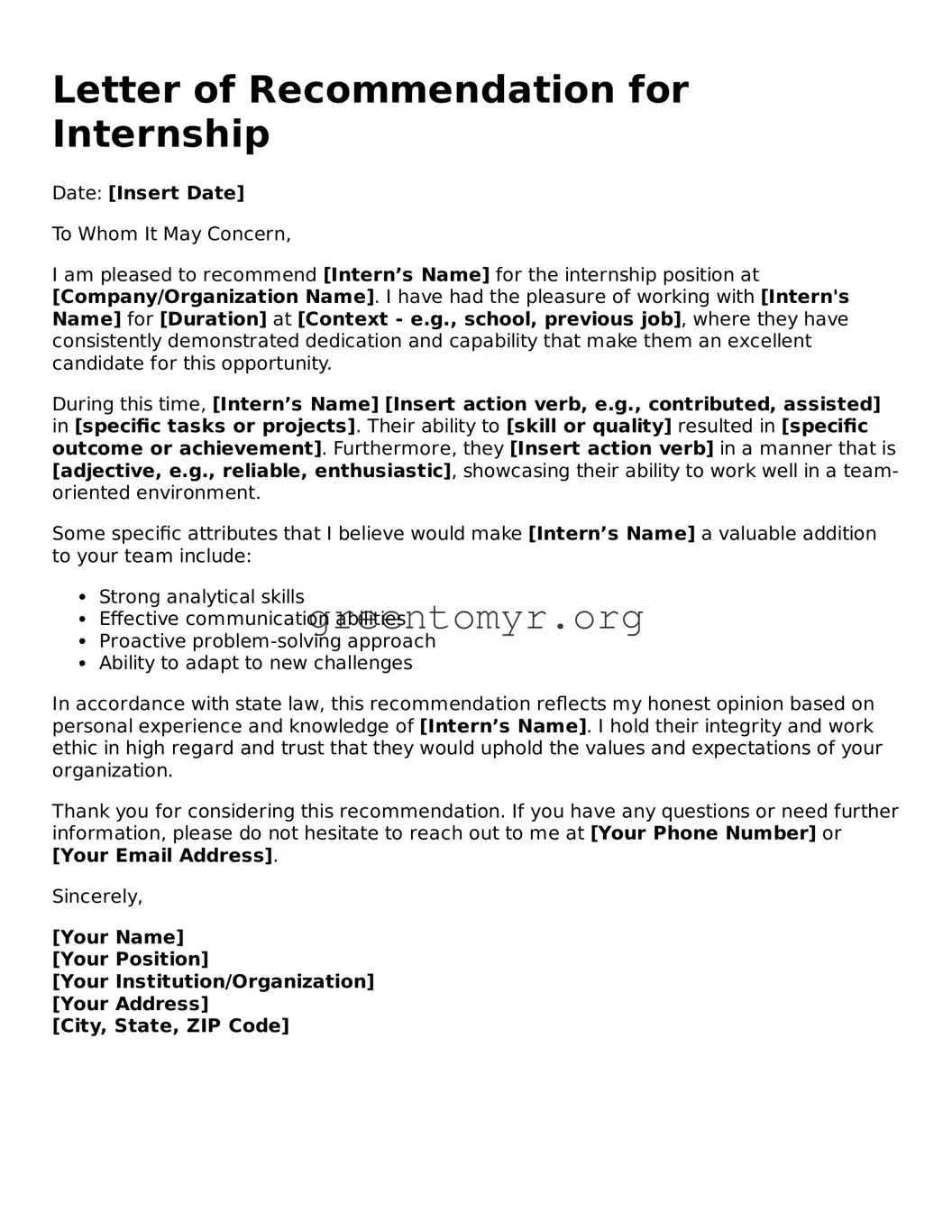Letter of Recommendation for Internship
Date: [Insert Date]
To Whom It May Concern,
I am pleased to recommend [Intern’s Name] for the internship position at [Company/Organization Name]. I have had the pleasure of working with [Intern's Name] for [Duration] at [Context - e.g., school, previous job], where they have consistently demonstrated dedication and capability that make them an excellent candidate for this opportunity.
During this time, [Intern’s Name] [Insert action verb, e.g., contributed, assisted] in [specific tasks or projects]. Their ability to [skill or quality] resulted in [specific outcome or achievement]. Furthermore, they [Insert action verb] in a manner that is [adjective, e.g., reliable, enthusiastic], showcasing their ability to work well in a team-oriented environment.
Some specific attributes that I believe would make [Intern’s Name] a valuable addition to your team include:
- Strong analytical skills
- Effective communication abilities
- Proactive problem-solving approach
- Ability to adapt to new challenges
In accordance with state law, this recommendation reflects my honest opinion based on personal experience and knowledge of [Intern’s Name]. I hold their integrity and work ethic in high regard and trust that they would uphold the values and expectations of your organization.
Thank you for considering this recommendation. If you have any questions or need further information, please do not hesitate to reach out to me at [Your Phone Number] or [Your Email Address].
Sincerely,
[Your Name]
[Your Position]
[Your Institution/Organization]
[Your Address]
[City, State, ZIP Code]
